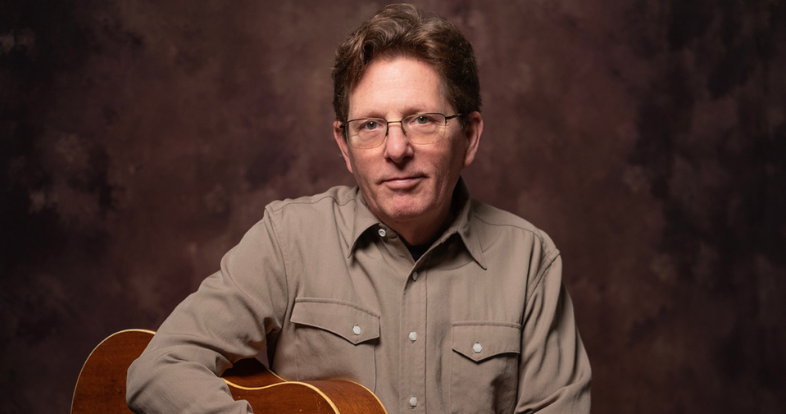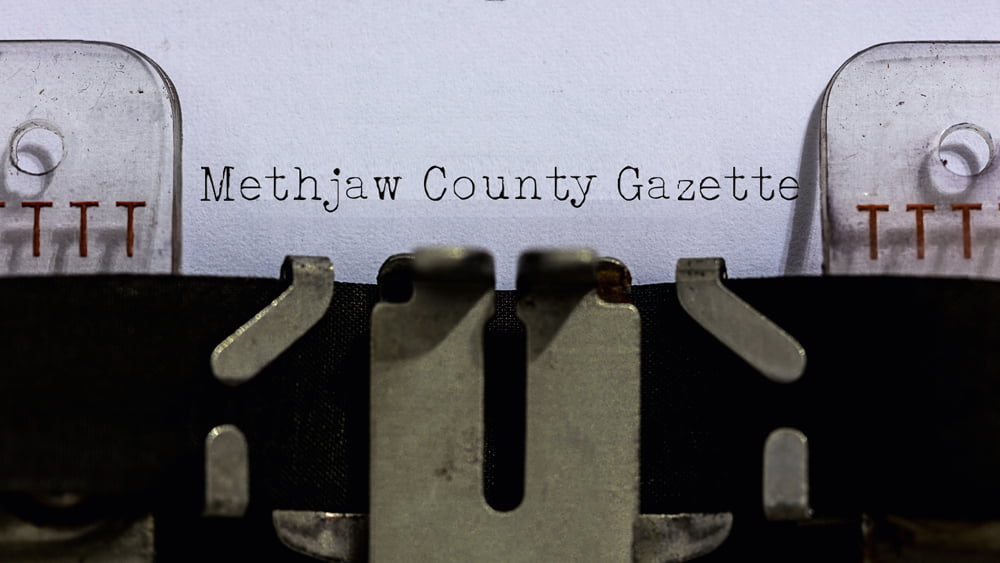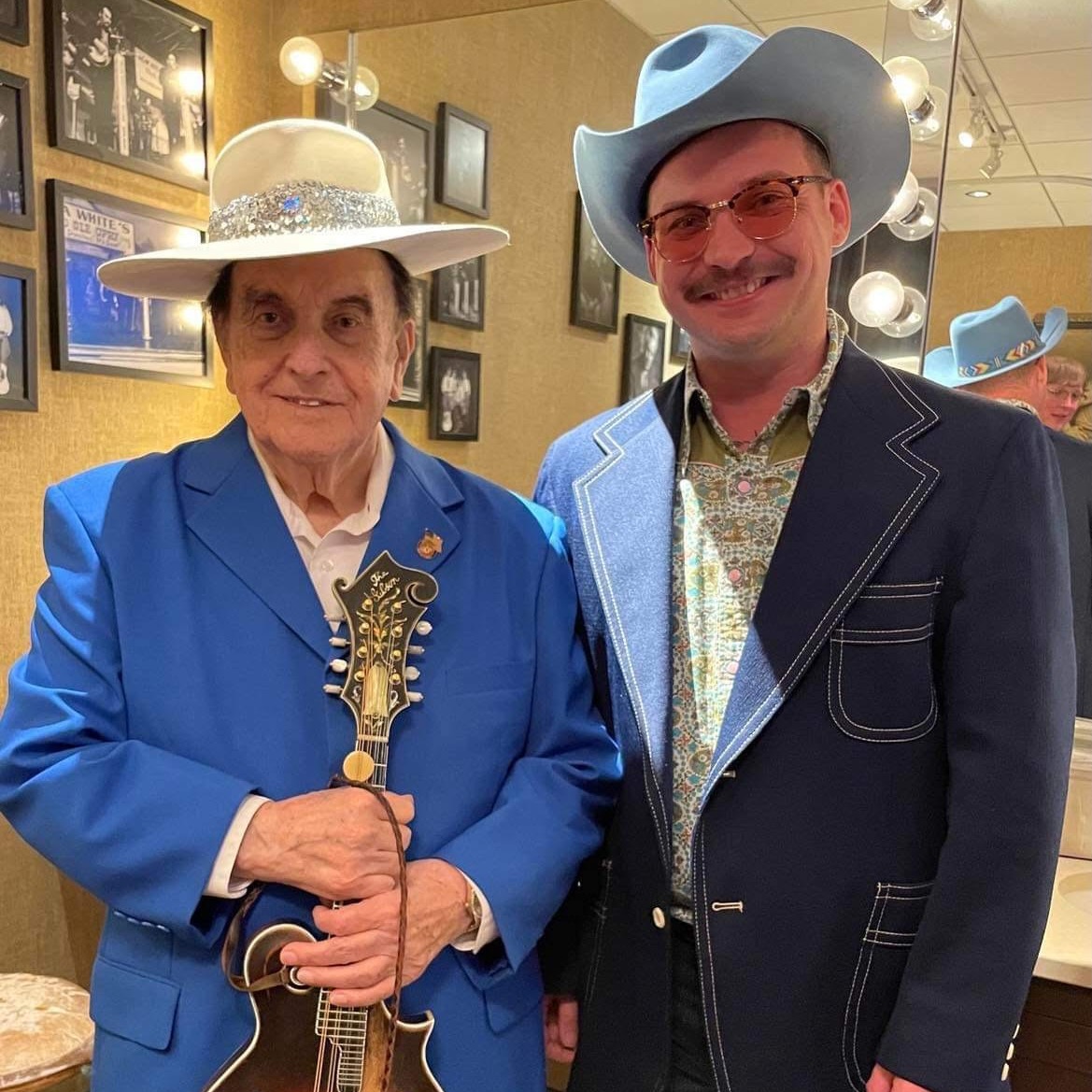Over his celebrated career, which has now spanned nearly half a century, Tim O’Brien has gained notoriety as an instrumentalist and singer with the bluegrass band Hot Rize, and for his original songs, which have been recorded by Garth Brooks, The Chicks, Nickel Creek, and many more. In recent decades, the Grammy Award-winner has recorded as a solo artist and in collaboration with Darrell Scott, Dirk Powell, Sturgill Simpson, and most recently with his wife, Jan Fabricius.
We caught up with O’Brien on the heels of his annual trip to the Telluride Bluegrass Festival, where he is considered an institution, to discuss his new record Cup of Sugar, which sees him taking on the role of a societal elder. Throughout the collection of songs, O’Brien takes on the perspectives of several different animals as a way of learning from the natural world, as well as characters such as Walter Cronkite. In our conversation, O’Brien explores what it means to be comfortable with your role and direction as an artist, and clarifies his artistic goal – to continue being more and more himself.
BGS: You have a lot of animal references on this album, what do you think is bringing you to those themes right now?
Tim O’Brien: You know, it’s funny, I had actually written a song with Thomm Jutz called “Old Christmas Day” on January 6th. January 6th was Christmas in the Julien Calendar before they changed it to be more in line with the solar system. Anyway, the legend was that on Old Christmas Day, the animals all talk to each other. After writing that song I was actually thinking about trying to do a whole record of animal songs… but I went to a bunch of stuff I had already, so I decided to split it up. I think that’s what inspired the direction.
I love “Shout LuLu,” the song about the Tennessee border collie, who inherited the wealth of her owner Bill Dorris. Dorris was the subject of controversy because of the statue of Nathan Bedford Forrest, Confederate general and leader of the KKK, which was displayed prominently on his land facing the highway. How does the story of Lulu relate to the story of the KKK statue in your mind?
Well, a dog probably doesn’t see black or white, or understand discrimination. It’s just a dog, and maybe we all wish we could be that way… it’s hard to be innocent in this world, but a dog doesn’t care, and that’s what’s great about it.
The natural world can teach us a few lessons, that’s kind of like a running message through time. Human beings, since the first cave paintings, have commented on animals; they are interesting to us, and they represent different things. We study them and try to learn from them. I like what Lulu teaches us about the beliefs of her owner.
“Took Lulu to Hogan Road where Nathan Forrest’s statue stood/
She didn’t shout she didn’t beg, stood next to Forrest with lifted leg/
Statue covered with paintball pink, now it has a Lulu stink/
Don’t know from white supremacy, just knows a place she likes to pee/” – “Shout Lulu” excerpt
You talk in your record notes about having the perspective of an elder who has seen a lot of changes both in the world at large and in the music business, can you talk about this viewpoint and what you’re trying to say in these songs with regards to that specifically?
I’m closing in on 50 years doing this, I’m about to turn 70 this year, and so many things have changed. But the music still goes on, and people still make it for the same reasons; they want to express something, they want to tell a story, they want to connect with people… but the changes get harder and harder to adapt to as you get older.
Social media is so important now and it’s something I don’t really interact with at all. I’m lucky that Jan [Fabricius] does all of that, but it just doesn’t really occur to me. I probably won’t ever do it. These days you’re in charge of promoting your shows, because the clubs are kind of cutting corners, and they’re hurting financially, and that’s just the way it is. I’m just watching all of those changes and I’m kind of indifferent to them mostly. I try to keep my head down and just try to make my music.
Being an elder, well we lost two great mandolin elders this week, Bobby Osborne, and Jessie McReynolds. You just realize how much our music helps us define our lives.
Nancy Blake said once, “Ya know, people wonder why we sit around and practice our own material, but it’s kind of the way we define our lives.” I feel like that is true for me.
But you see these guys going, and it’s the last of the first and second generation going away… and you wonder who else is going away… I go watch Chris Thile and I say, “Take that baton and run with it, I’ll follow up on the rear!” I like to learn new things all the time, but mostly I’m trying to do the best I can in the direction I’ve already established and faithfully follow that.
I love the song “The Anchor,” which is told from the perspective of Walter Cronkite. What made you want to write about him? What does he represent for you?
Well, the way that the news is disseminated today is in a million ways. They shape it to a certain audience, and they shape the news to that, so you get a million different versions of the news. If you get happy with a certain outlet, maybe you don’t notice a lot of things going on… I think the same thing happened back when there were only three news outlet. But they weren’t selling it, they were propped up by other shows. They weren’t really competing for advertising dollars in the same way, mostly the networks realized they had to have a news thing. I was just thinking about that difference.
Cronkite was the trusted guy and when he made a telecast one night and said, “It looks to me like this Vietnam conflict, we can’t win it.” President Johnson said, “If I’ve lost Cronkite then I’ve lost the nation… I won’t run for president again.” Cronkite had a lot of power, but he was trying to remain neutral. It’s really hard, it’s hard to remain neutral about the news, and if there’s a truth in the news, it’s hard to reach it.
I’m addicted to the New York Times and I read it every day, so I’m just as much a part of this as anyone. I have my one outlet and I stick to it.
There are a lot of songs on this album told from a perspective that is not your own, was that intentional?
Actually, Danny Barnes brought it up to me, he said, “Do you ever write a song that’s not from your own perspective?” It was helpful to aim from that direction, but I think your own perspective kind of comes through regardless. It’s just the reverse of reading a novel and identifying with one of the characters, you kind of bring some of your own personality into it. Sometimes you have to trick yourself into writing songs, and I think trying for a perspective other than your own is one technique that helps.
How have you seen your songwriting or approach to songwriting change throughout your career?
When I first started writing, I was at sea about what to start writing about, and what’s good and what’s not good. Do you imitate others? Then you get some experience, and you get some good reactions, and you trust yourself more.
One thing that’s kind of more true for me now, in the last 10 years. I realize that in a certain way, I kind of write about the same things over and over, just different versions. Like, I’m always talking about, or trying to get people to see, the bigger picture and include everyone in my world. I used to worry that writing the same songs, [topically], was a problem, that I need to break it apart and start over… but then I realized that everyone I admire has their own thing that they do, and you just get better at it. Maybe you just continue to go deeper…
Thelonious Monk said that the genius is the one who is most like himself. That’s hard to find. I think maybe I found it and I don’t like it…
Just kidding.
Was there anything important about this record that was different from the way you’ve worked in the past?
Jan [Fabricius] and I have a cottage industry here, we have a cottage, and an industry. [Laughs] We’ve also been writing songs together. I think one of them is one of the better ones on this release, “She Can’t, He Won’t and They’ll Never.”
We also have a record label… and for the last record and this one, I’ve used artwork that I’ve drawn myself. I showed something I drew to [Danny] Barnes and he told me, “That’s so much better than anybody else could do it.” That kind of inspired me to do more of my own drawings. A lot of this is just continually becoming more and more comfortable with yourself.
LISTEN: APPLE • SPOTIFY • STITCHER • AMAZON • MP3
(See our full post on Tim O’Brien’s episode of Basic Folk here.)
Photo Credit: Scott Simontacchi






